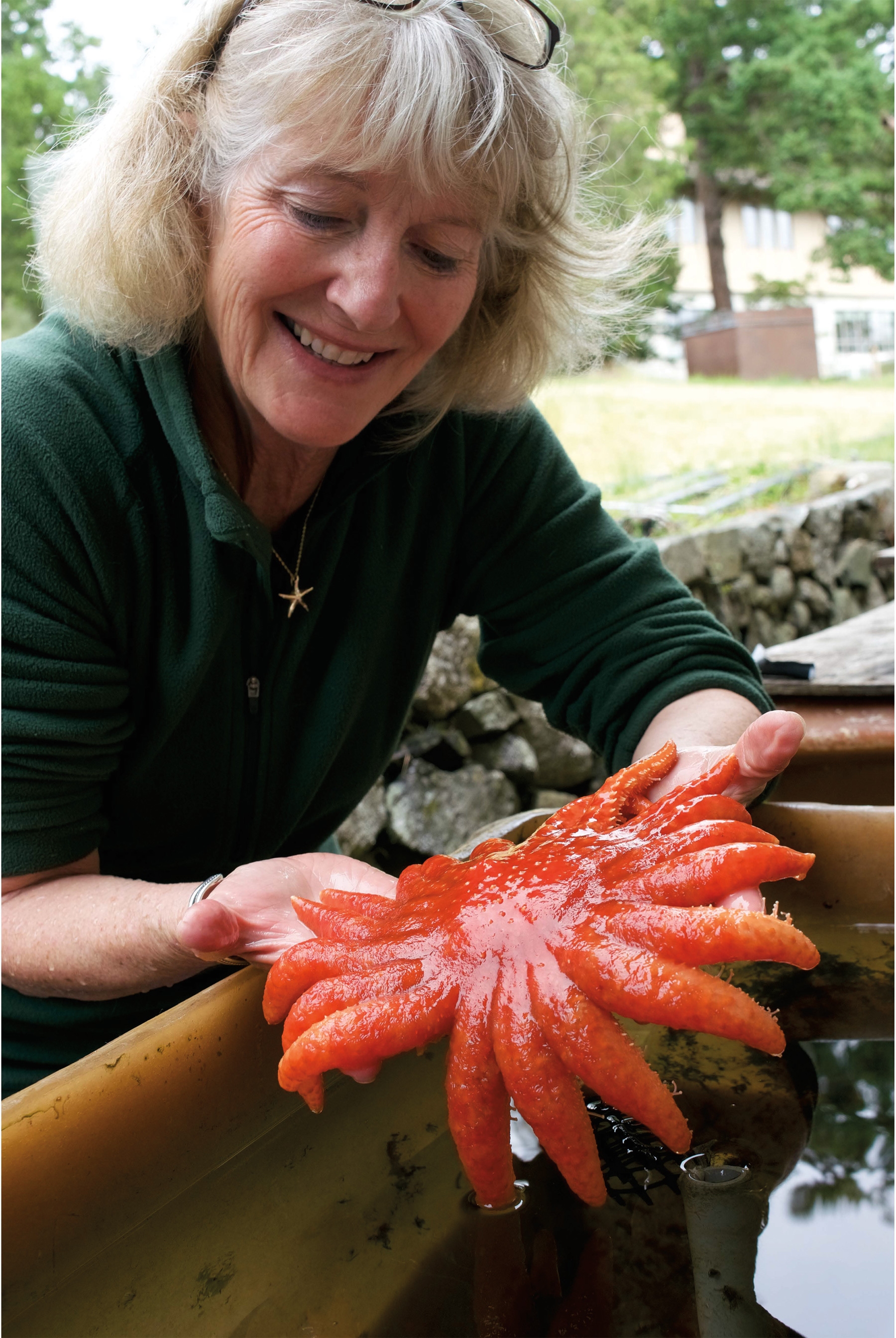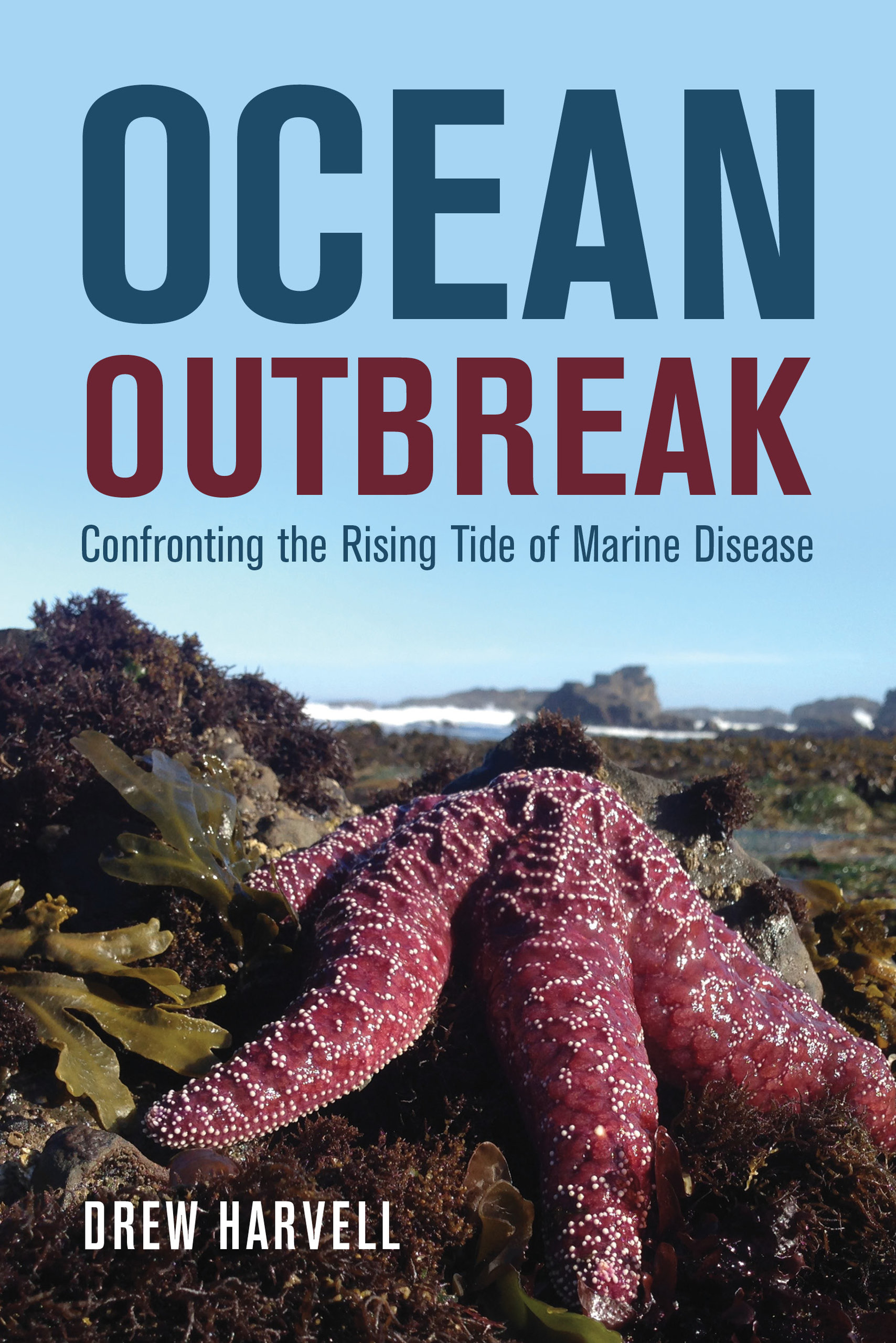
The Blob, a marine-induced heat wave that warmed the waters of Puget Sound in 2014 to 2015, was a factor in the death of many marine animals, including Salish Sea icons salmon and sea stars. Now, like a blockbuster horror movie, there may be a Blob sequel forming in the Pacific, according to recent reports from the National Oceanic Atmospheric Administration.
Dealing with the fallout of the Blob was Dr. Drew Harvell, a marine ecologist with a front row seat on the transformation of the world’s oceans. A Cornell University professor who teaches and conducts research out of Friday Harbor Labs on San Juan Island, Dr. Harvell has dedicated her professional life to studying the impacts of climate change on the marine world (see Star Signs feature in Northwest Yachting’s September 2019 issue for more).
Lucky for us, she has decided to share her unique perspective in Ocean Outbreak, an accessible book that reads like a detective novel. Dr. Harvell is not only a scientist, but a skilled writer who brings the underwater world to exquisitely-detailed life in her page-turning book. The impetus for Ocean Outbreak came from her experience testifying in front of Congress. The lack of awareness on how warmer water was devastating marine life shocked her.
After that 2015 hearing, Dr. Harvell set to writing about her personal experiences with marine disease outbreaks. She focuses on coral, sea stars, abalone, and salmon outbreaks. Except for the coral, all the species inhabit the Salish Sea, her home and ours. Published this year, the book is a great read that vaults you out of any complacency about climate change. Clear and concise, it does not pull punches.
I do not recommend this book if you want to be lulled to sleep. I was up at night reading to see if the scientists could uncover what was killing the coral and more recently, the sea stars. The devastation was so fast and quick; it was a battle against time for the scientists, including Dr. Harvell. She played a lead role in tracking the disease that destroyed most of the star population on the West Coast.

The amount of teamwork required to tackle a scientific hunt for disease is well documented in the book. Dr. Harvell brings these scientists into the narrative and transforms them into people you or I could relate to. This is first and foremost an intimate story of the ongoing battle to track and stop the ongoing destruction of our oceans.
For me, a big takeaway from the book was how close these pathogens align with human disease-causing agents. For example, the abalone was struck by a long-acting rickettsial bacteria, the same bacteria that causes typhus and Rocky Mountain spotted fever. On land, rickettsia requires a vector such as an insect to transmit it. Dr. Harvell writes, “Seawater facilitates survival and the spread of pathogens, while air does not.” Bone chilling.
Dr. Harvell describes how she and fellow scientists who were diving in Southeast Asia contracted amoebic dysentery and were extremely ill. One of the world’s leading coral scientist, Dr. Bette Willis, contracted typhoid on the same dive. She survived but it took months to recover. There is a silver lining to this horrifying story. The scientists went back to study what caused their illness five years later. It was determined that raw sewage was floating unimpeded into the water, but in areas with eelgrass beds, the water was clean. Eelgrass acts like a filter for toxins and pollutants—a landmark discovery.
There are answers to the problems facing us, we are not doomed. At the end of the book, Dr. Harvell outlines several actions we can take to combat the damage that is, frankly, induced by humans. Among the suggestions are reducing the use of plastic and protecting eelgrass beds. Along with her knowledge and writing, Dr. Harvell gives us the gift of hope and her message is clear. If we want to stop repeated appearances of the catastrophic Blob and other environmental crises, we must change our ways.


